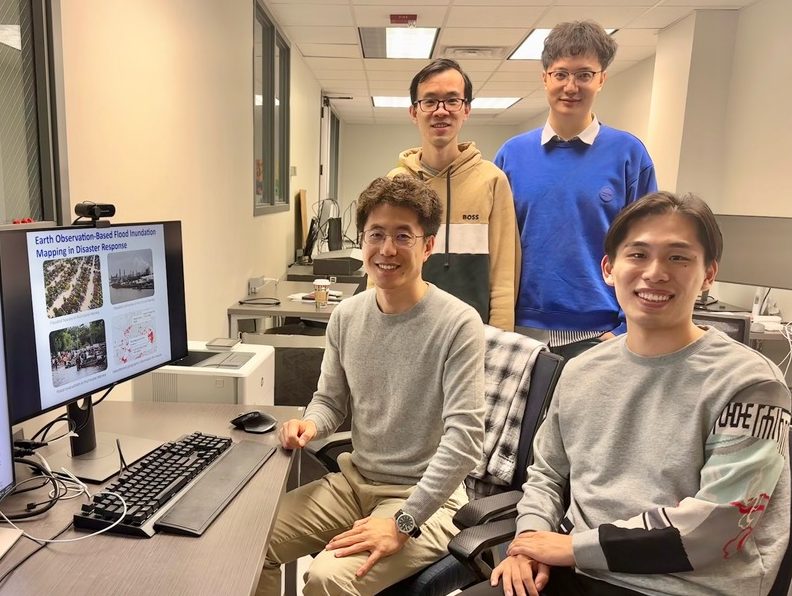Nearly 900 million people live in low-lying coastal zones around the world and bear the brunt of impacts from more frequent and severe hurricanes, flooding and rising sea levels. Early warning systems play a critical role in saving lives and preventing loss and damage to property from coastal hazards such as hurricanes, flooding and rising sea levels. Zhe Jiang, Ph.D., CCS affiliate and associate professor in the University of Florida’s Computer and Information Science and Engineering (CISE) Department is leading a project to train artificial intelligence (AI) models to simulate ocean currents much faster and using significantly less energy, which will enable first responders in coastal communities to make decisions more quickly during natural disasters like storm surges.

“What we develop could potentially contribute to faster storm surge forecasting that can make a dramatic impact in disaster response and coastal hazard management,” said Jiang. “Preliminary results show that in certain settings, our models could be 100 times faster or more than traditional numerical models.”
Current AI models are not designed to handle the complex spatiotemporal data in large-scale simulations of coastal circulation. Traditionally, ocean circulation simulations are done by running numerical models on a high-performance computing (HPC) platform, which is expensive, time-consuming and energy intensive. However, recent advances in deep learning and Graphics Processing Unit (GPU) technology are transforming the field. By training neural network surrogates of these numerical models, simulations can be generated much more quickly and with a smaller energy footprint once the networks are pre-trained. This project aims to develop a novel AI surrogate cyberinfrastructure for efficient large-scale spatiotemporal simulations in coastal circulation.

Educational activities of the project will include curriculum development, mentoring a broad group of high school students in AI seminars at Summer Camps, as well as year-long projects for a selected number of high school students for the regional Science Fair competition.
“Florida is among the first states in the nation to bring AI to high school classrooms,” said Jiang. “It’s important for high school students to learn it in the context of solving a significant societal challenge.”
This project is funded by the National Science Foundation (NSF). The research team includes Maitane Olabarrieta, Ph.D., CCS Associate Director and Professor with the University of Florida’s Department of Civil and Coastal Engineering; and Jie Ren, Ph.D., assistant professor, William and Mary Department of Computer Science. The project team also collaborates with Kaleb Smith, Ph.D., NVIDIA AI Technology Center site lead at the University of Florida.
—
By Megan Sam
